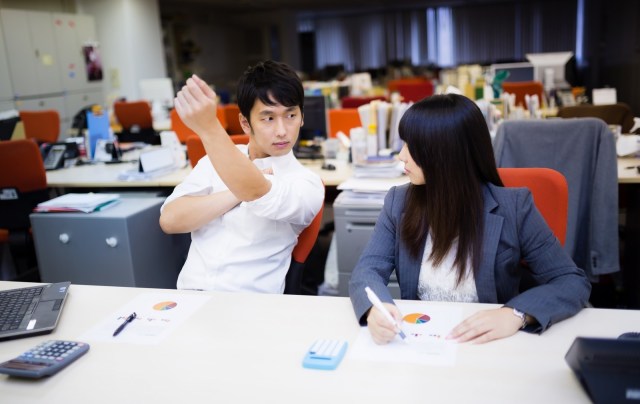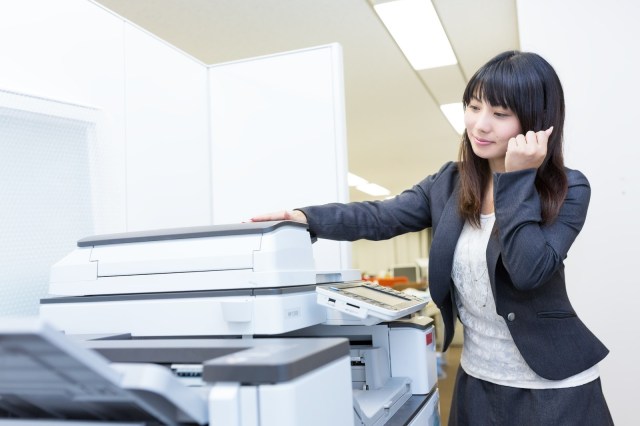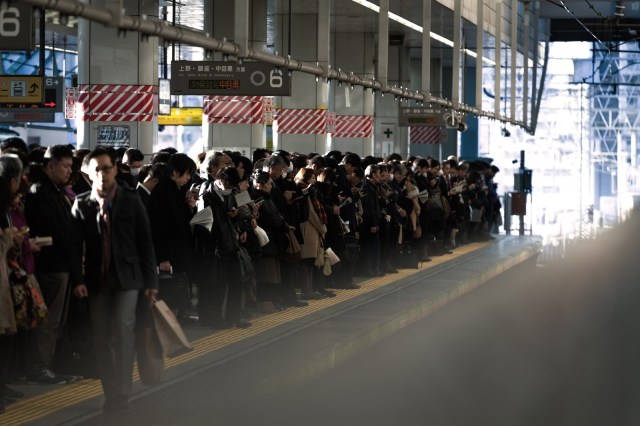
The coronavirus has disrupted everyone’s lifestyle, but it’s disrupted some of the bad parts too.
As the new year starts, a lot of people in Japan are hoping that it’ll be more like one of the old ones. Not 2020, of course, but one of those nice, pre-pandemic years.
Getting back to the old normal isn’t as quick and easy as turning the page on a calendar, though, and right now the coronavirus is still very much affecting daily life. But it’s important to take the good with the bad, so a recent survey by Japanese Internet portal Biglobe asked Japanese workers, many of whom have transitioned to telecommuting, what they don’t miss about their old workdays.
Specifically, the survey asked “During 2020, what did you come to feel was a pointless waste of time and energy about your old workstyle?” Responses were collected from 1,000 people aged 20 to 69 (with multiple responses), and here are the top results.
8. Chitchatting with coworkers (chosen by 7.4 percent of respondents)
Sure, a little office banter is nice. But if you have a coworker who’s constantly yammering on and on and on about their pet snake, lousy ex, or new workout routine? Then silence is golden.
▼ “…yes, thank you for the ticket to the ‘gun show.’ It was mildly impressive. Now please let me get back to work.”
7. Visiting clients’ offices (13 percent)
6. Business trips (14 percent)
5. My office (14.2 percent)
Negotiations are a necessary part of doing business. But why bother spending an hour going across town when you can handle everything with a 15-minute phone call or video chat?
▼ It’s not like shaking hands is part of Japanese business culture.
Business trips are basically the jumbo-sized version of in-person office visits, making them even bigger time/energy drains, and come to think of it, isn’t going to your own office just a small-scale business trip that you do every day?
4. Paper documents (20.7 percent)
3. Hanko (personal seals) (27.7 percent)
Japanese companies have a long love affair with paper. Not having an office printer, though, might finally convince some businesspeople that maybe they don’t need a hard copy of each and every document.
▼ Triplicate forms “just to be sure” don’t seem like such a great idea when you’re the one paying for toner and paper.
There’s also the fact that in Japan, you can’t mail things from your home, and it’s a lot easier to send a digital copy while still in your pajamas than it is to get dressed and walk to the post office.
Japan’s signature-equivalent personal seals are also looking a lot less necessary these days, since if you don’t have a paper document, there’s nothing to stamp your hanko on. One Tokyo temple even held a funeral service for them.
2. Work-related drinking parties (31.1 percent)
The key here is “work-related.” Some Japanese people do genuinely enjoy going out for a beer or two with friends who they just happen to work with. But when you’re at the pub because your boss invited everyone and you felt like you couldn’t say no, it can make the experience bitter in a way that has nothing to do with how many hops the brewer used.
▼ “Sure, after working a 10-hour shift I do want to get drunk…but I want to get drunk at home.”
1. Time spent commuting (35.4 percent)
Land is expensive in Japan, and while it’s one thing for a company to swallow the cost of rent in a centralized downtown district, that’s a luxury most workers can’t afford. A one-hour-one-way commute is pretty normal for Japanese office workers, and that hour is usually spent entirely on your feet walking to and from stations and standing in packed rush hour trains. Compare that to rolling out of bed and maybe having to walk to your living room, and it’s easy to see why commuting topped the list.
▼ This is about as nostalgic as colic.
The benefits of workers’ new lifestyles aren’t limited to just fewer things they dislike, either. When asked what positive changes they experienced in 2020, some of their answers were spending more time talking with their family (14.5 percent), having more time to think about themselves (19.2 percent), and feeling more relaxed and less hurried on a day-to-day basis (30.4 percent).
None of that means that Japanese workers would go so far as to say that life adjusting to the pandemic isn’t so bad, but at least they can say that it’s not all bad.
Source: @Press
Top image: Pakutaso
Insert images: Pakutaso (1, 2, 3, 4, 5)
● Want to hear about SoraNews24’s latest articles as soon as they’re published? Follow us on Facebook and Twitter!
Follow Casey on Twitter, where if you should ever work together, he’d like to apologize in advance for eventually wasting your time chitchatting about Patlabor.






 10 best Studio Ghibli anime, as picked by Japanese fans– Different ages have different answers
10 best Studio Ghibli anime, as picked by Japanese fans– Different ages have different answers Survey by Japanese ministry reveals high rates of “maternity harassment” in workplace
Survey by Japanese ministry reveals high rates of “maternity harassment” in workplace What are the most and least attractive hobbies for Japanese men and women? Survey investigates
What are the most and least attractive hobbies for Japanese men and women? Survey investigates Leading Japanese snack maker to continue teleworking, stop transferring people from own families
Leading Japanese snack maker to continue teleworking, stop transferring people from own families Tokyo temple holds funeral for personal seals in effort to reform outdated business practice【Vid】
Tokyo temple holds funeral for personal seals in effort to reform outdated business practice【Vid】 How to order snacks on a Shinkansen bullet train in Japan
How to order snacks on a Shinkansen bullet train in Japan Burger King Japan suddenly adds Dr. Pepper and Dr. Pepper floats to its menu nationwide
Burger King Japan suddenly adds Dr. Pepper and Dr. Pepper floats to its menu nationwide New Nintendo Lego kit is a beautiful piece of moving pixel art of Mario and Yoshi【Photos】
New Nintendo Lego kit is a beautiful piece of moving pixel art of Mario and Yoshi【Photos】 Hello, cosmetics! Clinique teams up with Hello Kitty this summer for first-time collaboration
Hello, cosmetics! Clinique teams up with Hello Kitty this summer for first-time collaboration Demon Slayer: Kimetsu no Yaiba gets new roller coaster attractions and food at Universal Studios Japan
Demon Slayer: Kimetsu no Yaiba gets new roller coaster attractions and food at Universal Studios Japan 11 different ways to say “father” in Japanese
11 different ways to say “father” in Japanese Kyoto tea merchant’s matcha parfait ice cream bars: The desserts we’ve been waiting 187 years for
Kyoto tea merchant’s matcha parfait ice cream bars: The desserts we’ve been waiting 187 years for East meets West in the Pacific-centered version of the world map
East meets West in the Pacific-centered version of the world map What do you eat when you catch a cold? We asked 11 of our Japanese reporters
What do you eat when you catch a cold? We asked 11 of our Japanese reporters Shinjuku izakaya’s all-you-can-eat-and-drink plan is one of Tokyo’s best secret cheap eats
Shinjuku izakaya’s all-you-can-eat-and-drink plan is one of Tokyo’s best secret cheap eats Nintendo history you can feel – Super NES, N64, and GameCube controllers become capsule toys
Nintendo history you can feel – Super NES, N64, and GameCube controllers become capsule toys “The most Delicious Cup Noodle in history” – Japan’s French Cup Noodle wins our heart【Taste test】
“The most Delicious Cup Noodle in history” – Japan’s French Cup Noodle wins our heart【Taste test】 Starbucks releases a cute Frappuccino and Unicorn Cake…but not in Japan
Starbucks releases a cute Frappuccino and Unicorn Cake…but not in Japan Kyoto Tower mascot termination reveals dark side behind cute Japanese characters
Kyoto Tower mascot termination reveals dark side behind cute Japanese characters McDonald’s Japan’s Soft Twist Tower: A phantom ice cream only sold at select branches
McDonald’s Japan’s Soft Twist Tower: A phantom ice cream only sold at select branches Yabai Ramen: What makes this Japanese ramen so dangerous?
Yabai Ramen: What makes this Japanese ramen so dangerous? Finally! Nintendo Japan expands Switch 8-bit controller sales to everybody, Online member or not
Finally! Nintendo Japan expands Switch 8-bit controller sales to everybody, Online member or not Japanese government wants to build luxury resorts in all national parks for foreign tourists
Japanese government wants to build luxury resorts in all national parks for foreign tourists To combat declining birth rate, Japan to begin offering “Breeding Visas” to foreigners
To combat declining birth rate, Japan to begin offering “Breeding Visas” to foreigners 10 things you should buy at 7-Eleven in Japan
10 things you should buy at 7-Eleven in Japan Studio Ghibli releases anime heroine cosplay dresses that are super comfy to wear
Studio Ghibli releases anime heroine cosplay dresses that are super comfy to wear Woman charged for driving suitcase without a license in Osaka
Woman charged for driving suitcase without a license in Osaka Studio Ghibli unveils My Neighbour Totoro miniature house model
Studio Ghibli unveils My Neighbour Totoro miniature house model Kyoto experiencing problems with foreign tourists not paying for bus fares, but not on purpose
Kyoto experiencing problems with foreign tourists not paying for bus fares, but not on purpose Fighting mild hunger with a Japanese soda that turns into jelly in the stomach【Taste test】
Fighting mild hunger with a Japanese soda that turns into jelly in the stomach【Taste test】 Studio Ghibli’s Howl’s Moving Castle tapestry unveiled in Japan for first time
Studio Ghibli’s Howl’s Moving Castle tapestry unveiled in Japan for first time McDonald’s new Happy Meals offer up cute and practical Sanrio lifestyle goods
McDonald’s new Happy Meals offer up cute and practical Sanrio lifestyle goods Sales of Japan’s most convenient train ticket/shopping payment cards suspended indefinitely
Sales of Japan’s most convenient train ticket/shopping payment cards suspended indefinitely Sold-out Studio Ghibli desktop humidifiers are back so Totoro can help you through the dry season
Sold-out Studio Ghibli desktop humidifiers are back so Totoro can help you through the dry season Japanese government to make first change to romanization spelling rules since the 1950s
Japanese government to make first change to romanization spelling rules since the 1950s Foreigner’s request for help in Tokyo makes us sad for the state of society
Foreigner’s request for help in Tokyo makes us sad for the state of society Ghibli founders Toshio Suzuki and Hayao Miyazaki contribute to Japanese whisky Totoro label design
Ghibli founders Toshio Suzuki and Hayao Miyazaki contribute to Japanese whisky Totoro label design Doraemon found buried at sea as scene from 1993 anime becomes real life【Photos】
Doraemon found buried at sea as scene from 1993 anime becomes real life【Photos】 Tokyo’s most famous Starbucks is closed
Tokyo’s most famous Starbucks is closed Princesses, fruits, and blacksmiths: Study reveals the 30 most unusual family names in Japan
Princesses, fruits, and blacksmiths: Study reveals the 30 most unusual family names in Japan Japan is so polite even its hanko stamps bow to show respect
Japan is so polite even its hanko stamps bow to show respect What do Japanese kids want to be when they grow up? For 30 percent of boys, YouTubers, survey says
What do Japanese kids want to be when they grow up? For 30 percent of boys, YouTubers, survey says Survey says more sixth graders in Japan aspire to work in medicine this year than last year
Survey says more sixth graders in Japan aspire to work in medicine this year than last year Study suggests Japanese workers are deeply distrustful of their employers
Study suggests Japanese workers are deeply distrustful of their employers Japan’s favorite Pokémon types by prefecture–which types are the most popular?
Japan’s favorite Pokémon types by prefecture–which types are the most popular? Japanese company tells worker he probably doesn’t have coronavirus, to come to work with a fever
Japanese company tells worker he probably doesn’t have coronavirus, to come to work with a fever How many times a day do Japanese men adjust their junk? New survey investigates
How many times a day do Japanese men adjust their junk? New survey investigates Over 30 percent of surveyed Japanese managers feel intense stress from working with foreigners
Over 30 percent of surveyed Japanese managers feel intense stress from working with foreigners How many married people with children in Japan admit to cheating on their spouse? Survey says…
How many married people with children in Japan admit to cheating on their spouse? Survey says… Lots of Japanese parents want their kids to work for Nintendo, but not just for the money, survey says
Lots of Japanese parents want their kids to work for Nintendo, but not just for the money, survey says Survey says more than 70 percent of Japanese people think gender inequality exists in Japan
Survey says more than 70 percent of Japanese people think gender inequality exists in Japan Which jobs in Japan have the most and least overtime? Survey investigates
Which jobs in Japan have the most and least overtime? Survey investigates 12/21 is Japan’s “Long Distance Lovers Day”: What makes it so hard to keep up long distance love?
12/21 is Japan’s “Long Distance Lovers Day”: What makes it so hard to keep up long distance love? Japan’s foreign population reaches historic milestone following largest-ever single-year surge
Japan’s foreign population reaches historic milestone following largest-ever single-year surge New capsule toys reinvent Japan’s hanko personal seal stamp whether you like it or not
New capsule toys reinvent Japan’s hanko personal seal stamp whether you like it or not
Leave a Reply